Did you know that one Ugandan mother dies every hour from pregnancy or birth-related complications? With 336 maternal deaths per 100,000 live births1, the reality is stark, but behind every statistic is a mother whose journey combines hope, pride, tradition, and the search for safe, compassionate care. This guide invites you into that journey, blending a mother’s voice with the expertise of healthcare advocates. We honour Uganda’s heritage, introduce modern solutions, and empower every woman to claim her right to quality care from the first signs of pregnancy through to recovery and nurturing her newborn.
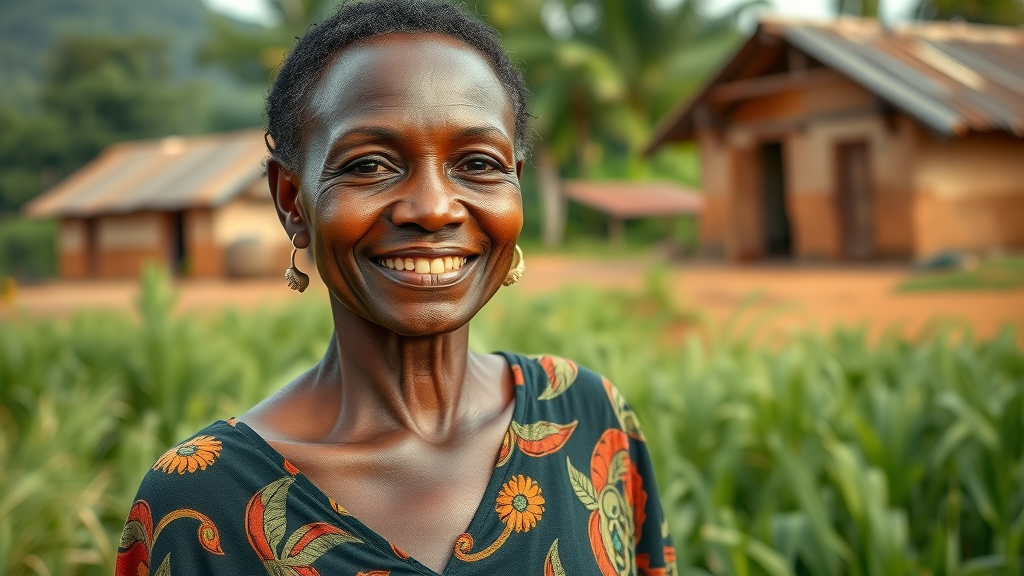
“Each mother’s journey is unique. In Uganda, we honour tradition while embracing modern care.” - Experienced mother & healthcare advocate
Startling maternal health statistic: Uganda’s most recent Demographic & Health Survey highlights 336 maternal deaths per 100,000 live births.
Urban mothers access clinics, yet for many rural women, distance, cost, and tradition shape the journey. In Uganda, modern medicine and ancestral birth wisdom often walk hand-in-hand.
My own journey began in a quiet village, the purple dawn, the first suspicions, and a mother’s whispered guidance marking both excitement and uncertainty.
A Mother's Journey Begins: Maternal Health Uganda
Every mother’s journey in Uganda is defined not just by geography, but by stories woven through tradition and modernity. In bustling Kampala, prenatal care is typically accessed at health facilities equipped with skilled professionals, whereas rural communities rely more on trusted traditional birth attendants, family knowledge, and sporadic outreach services. Still, whether in a city apartment or a thatched-roof home surrounded by cassava fields, the core concerns remain the same, how do I stay healthy, protect my baby, and receive the respect every mother deserves?
As an experienced mother and a healthcare advocate, I’ve seen both sides. My first pregnancy in rural Uganda was a tapestry of emotions: fear of complications, comfort in elder women’s advice, but worry over the nearest health facility being hours away. Today, I guide mothers from all backgrounds, sharing how every step, learning about signs of a healthy pregnancy, seeking timely antenatal care, and involving knowledgeable care providers, can make the journey safer and more joyful. With the support of Case Clinic and innovative health services, the hope is that no mother’s wellbeing is left to chance, city or village.
“Each mother’s journey is unique. In Uganda, we honour tradition while embracing modern care.” - Experienced mother & healthcare advocate
What You’ll Learn from This Maternal Health Uganda Guide
How to access prenatal care Kampala and rural settings
The value of integrating traditional and modern delivery practices
Understanding postpartum depression and finding help
Breastfeeding methods that blend practical and cultural insights
How Case Clinic supports mothers through every stage

Prenatal Care: Building Your Foundation for Maternal Health Uganda
Why Antenatal Care is Essential for Pregnant Women
Antenatal care is the first safeguard for every Ugandan mother. Beginning prenatal care early increases the chances of a healthy pregnancy and safe delivery, reducing the risk of complications for both mother and baby. These visits aren’t just about check-ups: they offer vital health education, nutritional advice, screening for conditions like anaemia and hypertension, and introduce mothers to essential immunizations. For pregnant women in Uganda, especially first-time mothers, learning about the milestones of pregnancy and the importance of regular monitoring is transformative in preventing maternal mortality2.
Case Clinic’s philosophy shines in this critical phase. Their multidisciplinary maternal health team provides compassionate support, blending evidence-based medical guidance with cultural sensitivity. In Kampala, expectant mothers can easily access state-of-the-art health care, but disparities remain for women in rural areas, where distance and cost limit clinic visits. Case Clinic addresses these gaps with mobile outreach, helping to level the playing field for both urban and rural patients. Early, consistent antenatal care isn’t just a medical recommendation—it’s a promise of a safer, happier motherhood journey.
Case Clinic obstetrician: “Our maternal health philosophy is centered on prevention, compassion, and respect for culture.”

Navigating Barriers to Antenatal Care in Rural and Urban Uganda
Accessing quality antenatal care is not always straightforward. Financial pressure, travel barriers, and a lack of awareness can delay first visits, especially in rural districts. Data collection from local health authorities indicates that while attendance rates for antenatal visits are rising in urban centres like Kampala, rural attendance lags due to logistical and economic hurdles. For many, community health workers become lifelines, bridging information gaps and encouraging women to seek timely support.
Family and community support play a crucial role. Elders often accompany women to clinics, while mobile health services and outreach programs by Case Clinic are vital for remote villages. By recognizing the value of both local solutions and modern care pathways, our healthcare system can harness community networks and trusted health workers, making antenatal care more reachable and less intimidating for every expectant mother in Uganda.
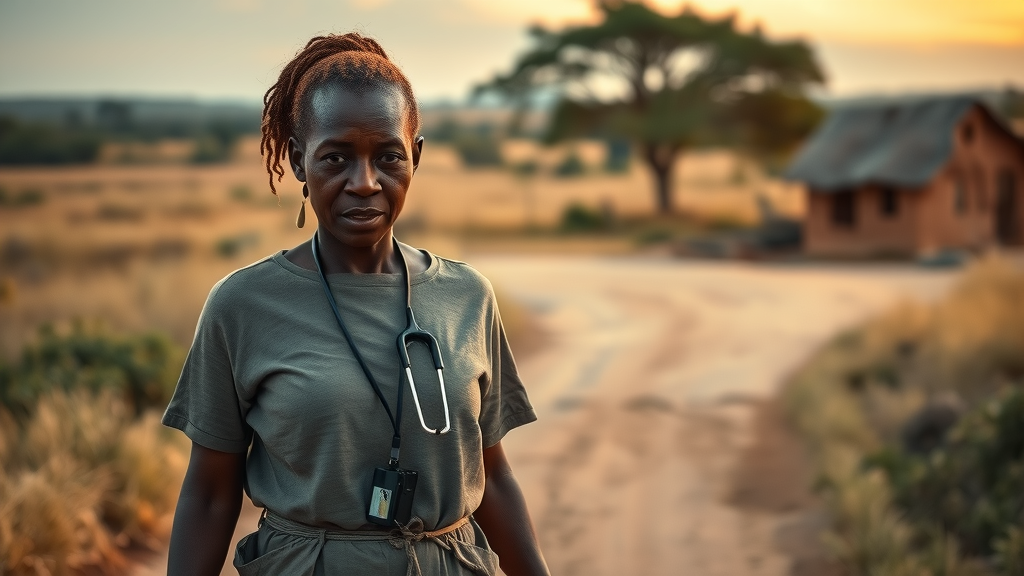
Comparison: Kampala vs. Rural District Access to Antenatal Care Services |
||||
Setting |
Access to Clinics |
Average Distance |
Quality of Care |
Community Support |
|---|---|---|---|---|
Kampala (Urban) |
High |
<5 km |
Comprehensive (Case Clinic & public hospitals) |
Mixed – Sometimes impersonal |
Rural Districts |
Low–Moderate |
5–30 km |
Variable (outreach/mobile) |
Strong extended family & community |
Delivery: Traditional Wisdom Meets Modern Safety at Case Clinic
Cultural Birth Practices: Strengths and Risks in Maternal Health Uganda
Uganda’s traditional birth practices are deeply respected, marked by the wisdom of experienced midwives (commonly known as “baabaas”) and time-honoured rituals. Many n o communities still trust family midwives who provide not just delivery assistance, but also spiritual and cultural comfort, harnessing herbal remedies and practices passed down generations. Extended family involvement is almost a rite, with sisters, mothers, and aunts supporting the mother—offering strength, encouragement, and community prayers.
Yet, while these customs nurture mothers emotionally, home births can introduce risk, especially if emergencies arise. The reality of long distances to the nearest health facility or the limited availability of skilled medical providers can be life-threatening in complications. However, some of the best maternal health outcomes in Uganda come from successful partnerships, where hospitals like Case Clinic build trust with traditional birth attendants, blending respectful cultural rituals with access to immediate medical expertise. Modern and traditional, when united, become a powerful force for safe delivery.
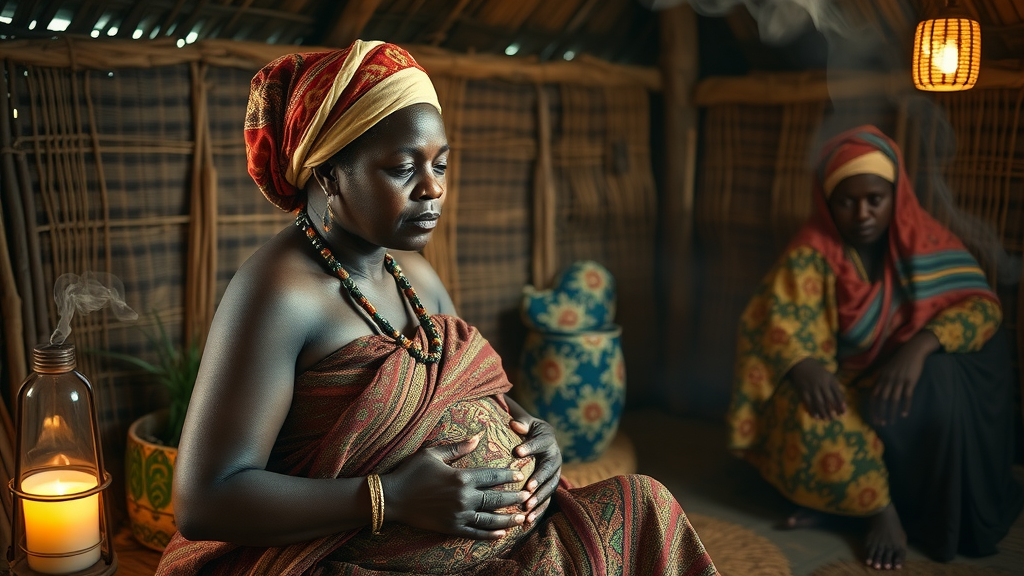
Safe Delivery Case Clinic: Modern Obstetrics, Personalized for Ugandan Mothers
Case Clinic’s reputation for safe delivery in Uganda comes from its holistic approach—comprehensive maternity care services include emergency obstetric care, natural and elective birth options, and tailored support from qualified nurses and midwives. The entire experience respects family rituals and beliefs, allowing women to integrate trusted traditions within a professional, safe medical environment.
Addressing fears and dispelling myths, Case Clinic works alongside family and traditional birth attendants, supporting open dialogue and customizing each birth plan. Its modern birthing suites, compassionate health workers, and advanced equipment ensure optimal safety and comfort, even as families sing songs of welcome or light incense, seamlessly honouring both heritage and health.
New mother testimonial: “Case Clinic made me feel safe and respected—they understood both my family’s traditions and the need for safe delivery.”

Traditional vs. Modern Birth Practices in Uganda: Benefits & Challenges |
||
Aspect |
Traditional |
Modern (Case Clinic & Hospitals) |
|---|---|---|
Birth Attendant |
Traditional midwife/family |
Obstetrician/skilled nurse/midwife |
Emergency Response |
Limited: rely on home remedies |
Immediate: surgery, medication, monitoring |
Cultural Rituals |
Integrated |
Respected and accommodated |
Outcome |
Emotional strength, but riskier |
Higher safety, lower mortality |
Postpartum: Facing The Hidden Challenges in Maternal Health Uganda
Recognizing and Addressing Postpartum Depression
After birth, new mothers in Uganda may quietly struggle with postpartum depression—a condition still shrouded in silence due to cultural taboos. Symptoms such as persistent sadness, withdrawal, exhaustion beyond the physical demands of childcare, and anxiety are often overlooked or unspoken. Both experienced mothers and health care providers must watch for these signs, offering reassurance and practical help. Estimates from WHO and Ugandan public health authorities suggest up to 20% of new mothers experience postpartum mood disorders, yet only a fraction seek professional support.
Families play a pivotal role; a grandmother’s attentive ear or an aunt’s shared stories can break down stigma and prompt action. Open dialogue and awareness programs are essential so that mothers know they are not alone. Case Clinic counsellors recognize that emotional wellness is as important as physical recovery, providing screenings and therapeutic support that acknowledge both psychological needs and the pressures facing modern Ugandan women.

Case Clinic counselor: “Motherhood is as much an emotional journey as it is physical. Early intervention saves lives.”
Postnatal Care: Recovery Support for Ugandan Mothers
The postnatal period is a time of renewal and risk, making quality postnatal care vital for Ugandan mothers. Home visits by skilled nurses enable ongoing checks for infection, wound healing, infant growth, and breastfeeding challenges. Support groups—whether at Case Clinic or through village cooperatives—offer new mothers a rare, judgement-free space to share anxieties, triumphs, and coping tips. Innovations like telemedicine are extending mental and physical health checks even to remote communities, leveraging the growing reach of mobile technology.
Case Clinic’s maternal health team ensures new mothers aren’t left to navigate this phase alone. Their approach includes regular follow-ups, teleconsultations, and the coordination of support from local health workers, offering wrap-around care that saves lives and strengthens families. Mothers learn to monitor their own well-being, spot warning signs (large blood loss, fever, depression), and reach out early for professional support—turning recovery into an empowered, communal process.

Postnatal Care Checklist: Health Assessments, Support, Danger Signs |
|||
Action |
Mother |
Baby |
Resource |
|---|---|---|---|
Health Assessment |
Blood pressure, infection check, wound healing |
Growth tracking, infection/screening |
Clinic/home visit |
Emotional Support |
Counselling, support groups |
Healthy attachment evaluation |
Community/Nurse/Case Clinic |
Danger Signs |
Fever, heavy bleeding, isolation |
Poor feeding, jaundice, fever |
24-hour helpline/telemedicine |
Breastfeeding: Nourishing with Love and Knowledge, Maternal Health Uganda in Practice
Breastfeeding Guidance: Tradition and Evidence
Breastfeeding is a cornerstone of both practical child health and rich cultural tradition in Uganda. From an early age, young women watch grandmothers and mothers nurture babies, learning age-old techniques as they go. Some communities believe in feeding colostrum immediately; others withhold it due to myths. It’s important for mothers to hear both, but also understand what science and the Ministry of Health recommend: start breastfeeding within an hour and continue exclusive breastfeeding for six months.
Challenges such as latching problems, low milk supply, or balancing household expectations can strain mothers—yet the right guidance helps. Lactation consultants at Case Clinic, peer support networks, and education sessions blend scientific advice with cultural respect, teaching tips for diet, boosting supply, and managing pain, all in the language and setting familiar to mothers. Open-air discussions on leafy verandas, as much as clinic workshops, are vital tools in strengthening Uganda’s next generation.
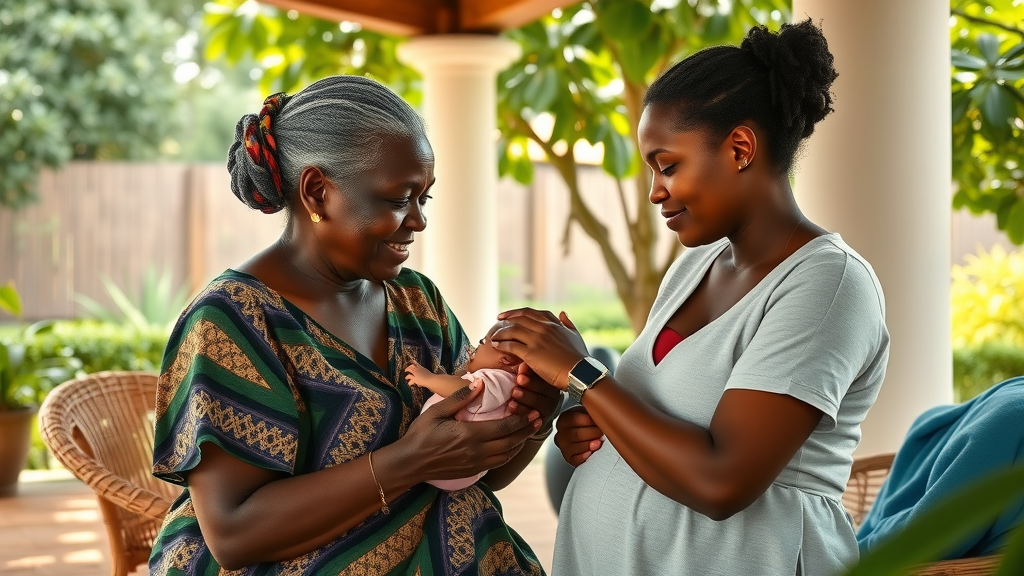
Urban vs. Rural: Bridging the Gaps in Maternal Health Uganda
Unique Challenges Across the Country
Urban Uganda offers easy access to health services—quick rides to clinics, digital health records, and a wider range of professional maternity care. But this comes at a cost, both financial and emotional; some city mothers describe care as impersonal or hurried. Conversely, rural women may need to walk for miles or save for months for a single appointment, making each visit precious and more communal. The strong family support found in villages is a key asset, yet limited resources and education widen the risk gap.
Case Clinic recognizes no one solution fits all. Their tailored outreach, urban health drives, rural clinics, mobile vans, and education workshops, ensures mothers are seen and heard, wherever they live. By working hand-in-hand with local leaders, midwives, and health workers, the barriers of geography, income, and tradition can give way to a health system centered on empathy, innovation, and community resilience.

Key Maternal Health Barriers: Urban vs. Rural, and How Case Clinic Responds |
|||
Barrier |
Urban |
Rural |
Case Clinic Response |
|---|---|---|---|
Access |
Convenient, but costly |
Remote, few clinics |
Mobile outreach, affordable services |
Care Quality |
High, sometimes impersonal |
Variable, strong family support |
Personalized, culturally sensitive care |
Information |
Readily available |
Traditional knowledge dominant |
Integrated health education |
Case Clinic: Your Partner in Motherhood—Comprehensive Maternity Services for Maternal Health Uganda
Why Mothers Choose Case Clinic for Maternal Health Uganda
Case Clinic is more than a hospital—it’s a community. Their care service spans obstetric consultations, safe delivery in modern birthing suites, emergency interventions, postnatal monitoring, and breastfeeding workshops. At every step, patient dignity, cultural traditions, and medical safety are respected—making mothers feel truly seen and heard.
Education and outreach are at the heart of Case Clinic’s vision. By empowering local health workers, partnering with traditional midwives, and providing mobile health clinics, they make sure no mother is excluded because of where she lives or what she believes. Their support groups, education for fathers, and holistic care recognize that maternal health is a family and community journey, carrying hope for a new, healthier generation of Ugandans.
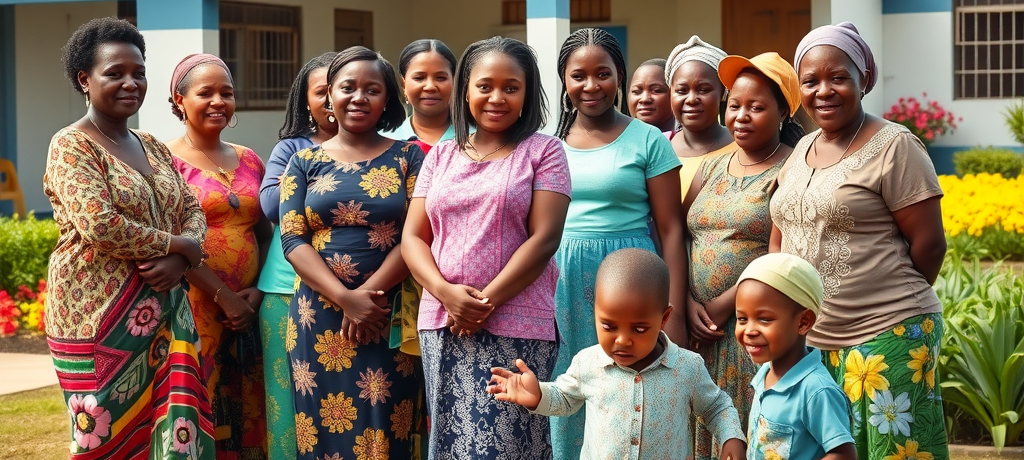
People Also Ask: Maternal Health Uganda and Beyond
What makes antenatal care in Uganda so important for mothers?
Antenatal care empowers mothers with early screening for complications, nutritional guidance, and emotional support. In Uganda, starting care early and attending all recommended visits dramatically reduces risks during pregnancy and childbirth, especially when delivered by skilled care providers through reliable health care services.
How are traditional and modern birth practices blended in Uganda?
Mothers can choose safe delivery by merging trusted family rituals—like herbal steams or prayer circles—with skilled hospital support. Clinics like Case Clinic consult family midwives, ensuring births are safer without sacrificing heritage or emotional comfort.
What are the signs of postpartum depression in Ugandan mothers?
Symptoms include persistent sadness, lack of energy, social withdrawal, changes in appetite, and negative feelings about mothering. Prompt recognition and accessing psychological support through postnatal care services are key for healthy recovery.
Do rural mothers get the same support as urban mothers in Uganda?
Case Clinic’s mobile outreach and education initiatives are narrowing the gap, delivering antenatal care, safe delivery, and postnatal care even to remote districts. However, geographical and infrastructural barriers still pose unique challenges that require ongoing health system reforms.
FAQs: Essential Questions on Maternal Health Uganda
What services does Case Clinic offer for expectant mothers?
Case Clinic provides full-spectrum maternal services: antenatal care, safe delivery, emergency care, postnatal support, health education, breastfeeding counselling, and mental health resources, all personalized for each mother’s background and cultural values.
How does Case Clinic integrate cultural birth practices with modern medicine?
By welcoming family midwives into the care process, facilitating cultural ceremonies within hospital settings, and holding collaborative education sessions, Case Clinic ensures each mother’s traditions guide, not hinder, her safety and health outcomes.
What should mothers do if they suspect postpartum depression?
Mothers experiencing ongoing sadness, exhaustion, or anxiety after birth should reach out immediately to a trusted health provider or Case Clinic’s counselling services. Early intervention is both empowering and life-saving, breaking the silence around mental health in motherhood.
Are breastfeeding support services readily available in rural Uganda?
Breastfeeding help is becoming more accessible as clinics and mobile services train peer supporters and grandmothers, while Case Clinic extends telemedicine and community workshops. However, mothers may need persistence to access these resources consistently in villages.
Lists: Key Steps and Tips for Maternal Health Uganda
Schedule your first antenatal care visit as soon as you know you are pregnant
Have an emergency birth plan with both modern and traditional helpers
Join a new mothers’ support group at Case Clinic or in your community
Track your physical and emotional wellbeing after birth
Key Takeaways: Maternal Health Uganda at Every Stage
Comprehensive care combines wisdom of Ugandan traditions with modern safety.
Early and ongoing support makes all the difference for mothers and babies.
Case Clinic is committed to accessible, compassionate maternal health for every Ugandan woman.
Conclusion: Embracing the Complete Maternal Health Journey in Uganda
Celebrate every step of your journey—from pregnancy discovery to postpartum recovery
Leverage both your cultural heritage and the best of modern health care
Case Clinic stands ready as your trusted partner—in town or village
Call to Action
Ready to start your journey or support a loved one’s safe motherhood? Discover Case Medcare Services Uganda for every stage of maternal health, prenatal to postpartum, city to village.
Sources
Uganda Demographic and Health Survey – https://dhsprogram.com/pubs/pdf/FR333/FR333.pdf
WHO Maternal Health Uganda – https://www.who.int/health-topics/maternal-health#tab=tab_1
To further enrich your understanding of maternal health in Uganda, consider exploring the following resources:
“Maternal and Child Health”: This resource provides insights into the challenges and strategies for improving maternal and child health services in Uganda, emphasizing the importance of community involvement and evidence-based interventions.
“Women’s experiences of maternal and newborn health care services and support systems in Buikwe District, Uganda: A qualitative study”: This study offers firsthand accounts of women’s experiences with maternal and newborn healthcare services in Uganda, highlighting the barriers and facilitators to accessing quality care.
If you’re serious about enhancing maternal health outcomes in Uganda, these resources will provide valuable perspectives and evidence-based strategies to inform and guide your efforts.
 Add Row
Add Row  Add
Add 

Write A Comment